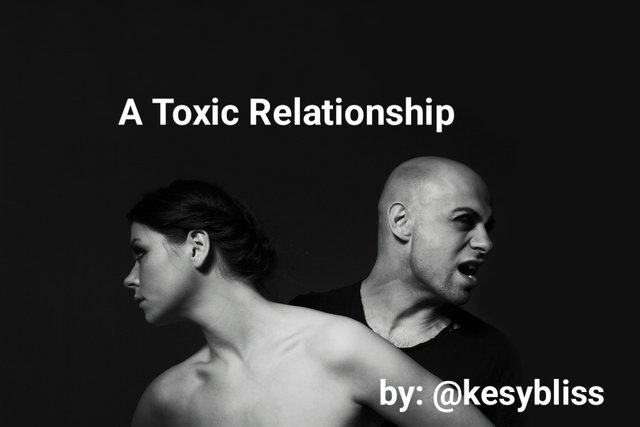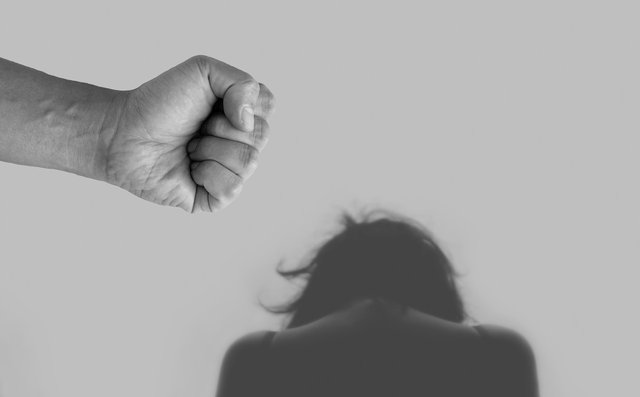 Edited with pixellabsource
Edited with pixellabsource
Hello wonderful steemians, hope all are having a good time. Life is one of the greatest gifts our maker gave to us, but happiness makes that life worth living so when that is threatened life seems toxic to us by the person who threatened it. So on this note, I appreciate @chant for coming up with this contest to help those whose happiness is threatened in a form of a relationship.
My understanding of what a toxic relationship is
A toxic relationship is that relationship where someone's emotion, mental and sometimes physical well-being is at risk. These behaviours can lead to feelings of anxiety, depression, low self-esteem, and a lack of trust. Toxic relationships can occur between romantic partners, family members, friends, or coworkers. They can be difficult to recognize, as the abusive behaviours may be disguised as concern or care for other people.
Here are some examples of toxic relationships:
• Constant criticism and belittling: If one partner constantly criticizes and belittles the other, it can be a sign of a toxic relationship. This can include mocking, insulting, or dismissing the other person's feelings or opinions.
• Controlling behaviour: A partner who tries to control every aspect of the other person's life, such as what they wear, who they talk to, or where they go, is exhibiting toxic behaviour. This can include emotional manipulation, such as threatening to leave or harm themselves if the other person doesn't comply with their wishes.
• Jealousy and possessiveness: If one partner is excessively jealous or possessive of the other, it can be a sign of a toxic relationship. This can include constantly checking up on the other person, accusing them of cheating or flirting with others, and demanding to know their whereabouts at all times.
• Physical or emotional abuse: This would include but is not limited to hitting, pushing, or choking the other person, as well as emotional abuse such as name-calling, gaslighting, or a criminal threat to someone or themselves.
No, am never in a toxic relationship, but people I know who are in a toxic relationship, find it challenging to get out of it or cope with the situation, and they do feel so overwhelmed, scared, and hopeless.
Some coping strategies for victims of a Toxic Relationship
These are some strategies that a victim can use to protect his/herself and begin to heal.
• Seek support: It's crucial to have a support system of people who can listen to you, offer advice, and help you feel less alone. Reach out to trusted friends or family members or consider talking to a therapist or counsellor.
• Set boundaries: Establishing boundaries is essential for protecting yourself in a toxic relationship. Be clear about what behaviours are unacceptable and what consequences will result if they continue.
• You should Practice self-care: What this means is that you should take care of yourself physically and emotionally by eating well, exercising, and engaging in activities that bring you joy and happiness. Moreover, you can also practice relaxation techniques such as meditation or deep breathing exercises.
• Develop an exit plan: If you feel that your safety is at risk, it's important to have a plan for leaving the relationship. You can find a safe place to stay, or talk to a lawyer.
• Always focus on your goals and priorities: Set goals for yourself and also work towards achieving those goals. This will keep you busy, help you feel more in control and best of all give you a sense of purpose outside of the toxic relationship.
Advice for victims of a Toxic Relationship
Dear reader If you are in a toxic relationship know that you are not alone in this and that there are resources and support for you. Do not forget that you deserve to be in a relationship that is respectful, loving, and safe. And here are some words of advice that may help:
• Recognize the signs of a toxic relationship or warming sign or red flag: It's essential to understand what constitutes a toxic relationship and to recognize the warning signs. This knowledge can help you identify when you're in an unhealthy situation and make a plan for how to leave or seek help.
• Prioritize your safety: If you're experiencing physical or sexual abuse, your safety is paramount. Call a domestic violence hotline, or the police immediately for help If you're in danger.
• Reach out for support: It's essential to have a support system of people who can listen to you, offer advice, and help you feel less alone. Reach out to trusted friends or family members or consider talking to a therapist or counsellor.
• Create a safety plan: If you're planning to leave a toxic relationship, create a safety plan. This can include finding a safe place to stay, setting aside money, packing a bag with essentials, and having a plan for contacting the police if necessary.
• Build self-esteem: In a toxic relationship, your self-esteem or self-value or self-worth may have reduced to nothing. So focus on building your confidence by engaging in a wholesome activities that make you feel good about yourself. Also, spend most of your time with people who support and appreciate you for who you are.
• Seek legal advice: If you're considering divorce or separation from a toxic partner, seek legal advice to understand your rights and options. By doing this, it will help you make decisions in the future
Conclusion
It is important to identify toxic relationships and take steps to end them or seek professional help to improve the situation if you're staying. It may also be helpful to seek support from friends, family, or a therapist to process any emotional trauma and develop healthy relationship patterns in the future.

